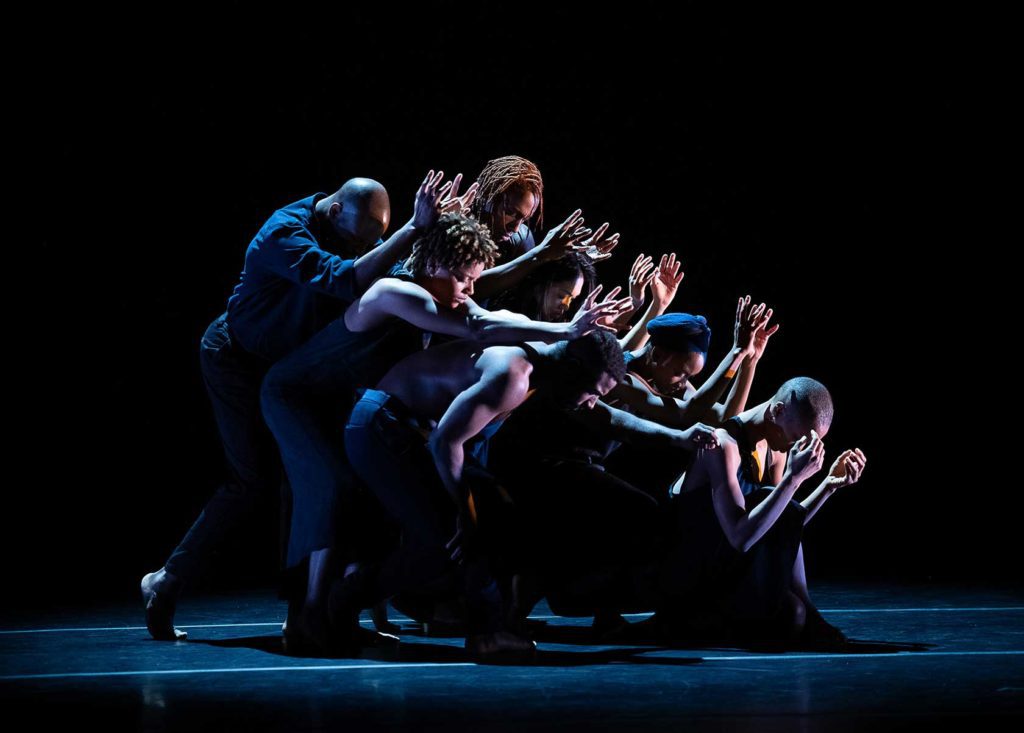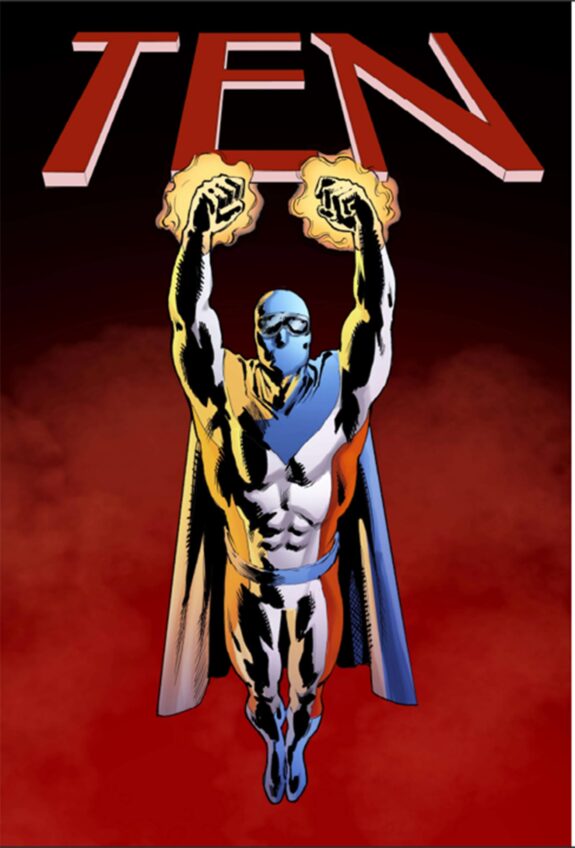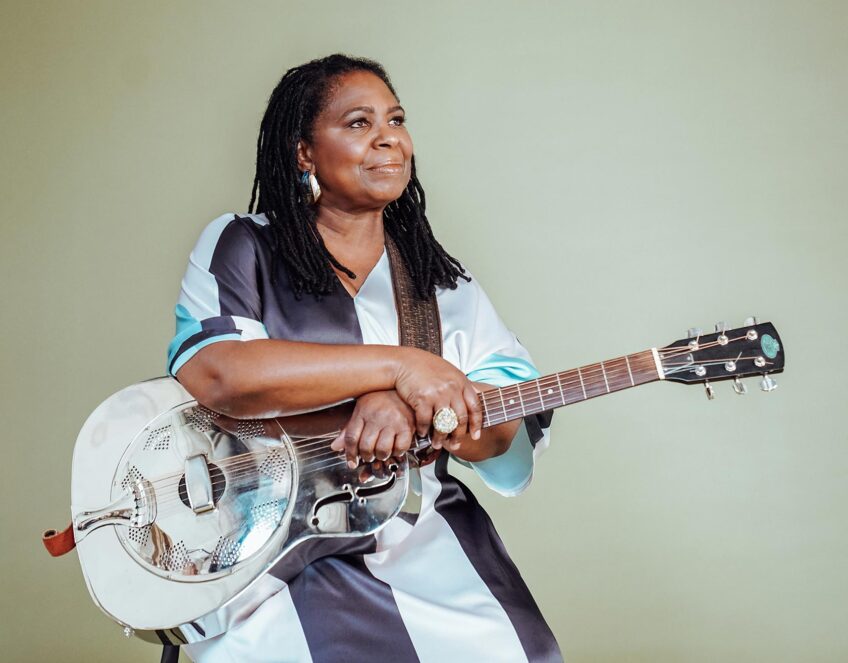
When acclaimed choreographer Kyle Abraham visited Boston with his company, A.I.M. (for Abraham in Motion) by Kyle Abraham, in November 2012, he and his dancers performed the Boston premiere of “The Radio Show” at the Institute of Contemporary Art/Boston, an evening-length work spanning a vast array of musical veins.
Last weekend, A.I.M. returned to the ICA/Boston with works choreographed to a narrower swath of music — introspective ballads.
Before the first performance on Friday night, John Andress, ICA/Boston’s curator of performing arts, announced a COVID-induced pivot: Because one dancer had tested positive, the third work in the program could not be performed. In its place, he would host an on-stage conversation with Abraham, a workaround that was greeted with enthusiastic applause.
Opening the program was a 2011 work, “The Quiet Dance,” performed to a recording of pianist Bill Evans playing his arrangement of Leonard Bernstein’s “Some Other Time,” from Bernstein’s 1944 musical “On the Town.” Abraham’s choreography finds the melancholy vein in the ballad, a song of farewell as three sailors leave their new-found romantic partners to ship out.

Choreographer Kyle Abraham during a post-performance conversation with John Andress and audience members. PHOTO: Susan Saccoccia
Spare lighting by Dan Scully and simple, fitted costumes by Kristi Wood kept the focus on the lyrical syncopation of legs, arms and torsos. The work began in silence, on a dark stage. Then soloist Catherine Kirk appeared, elegant and long of limb, and laid out a vocabulary of fluid raveling and unraveling movements echoed by four dancers who joined her — Tamisha A. Guy, Keerati Jinakunwiphat, Claude “CJ” Johnson, and Donovan Reed. Punctuating the flowing, modernist momentum with deep, angular bends and nurturing gestures such as rocking an infant and caressing touches, the dancers spun a spellbinding and healing performance.
Almost twice as long at 26 minutes, the 2021 work “Our Indigo: If We Were a Love Song,” came next. This sequence of six solos, duets and trios was choreographed by Abraham and his company to downbeat selections from the songbook of Nina Simone. Dark, form-fitting costumes by Abraham and Karen Young emphasized the dancers’ sculpted bodies.
In the fabulous opening segment, the seven-member ensemble formed a slow-moving human knot to Simone’s rendering of the traditional folk song, “Black Is the Color of My True Love’s Hair.” Jae Neal followed with an intense solo to Simone’s melancholy “Keeper of the Flame.”
Defying the defeatist lyrics of the Richard Rodgers/Lorenz Hart ballad “Little Girl Blue” with her astonishing solo to Simone’s rippling chords, Gianna Theodore rose from the floor using only her hands, executing arcs, twists, backward lifts and spins that drew from breakdance but beyond. Her fearless precision was a triumphant counterpoint to this portrayal of an abandoned woman.
Mirroring each other in their duo to “Don’t Explain,” Neal and Reed created a suave dance drama with a staccato, jerking exit that acknowledged pain.
With its tempo of rapid spins and pauses, Jinakunwiphat’s solo to “Wild Is the Wind” evoked fury as a force of nature. Kirk delivered a somber solo to Simone’s a cappella musical setting of “No Images,” a poem by Harlem Renaissance writer William Waring Cuney with the refrain “she thinks her brown body has no glory.”






